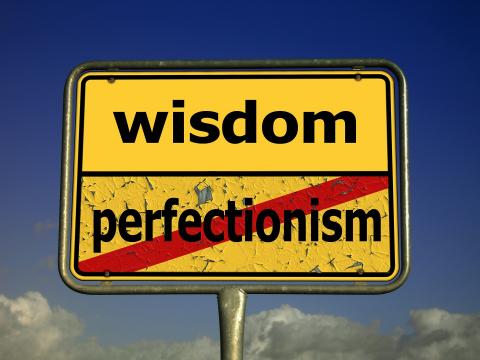Innovating Activism : Forsaking Perfectionism
Advent of Internet

According to Quincy Larson, the story of internet is the same as any other information technology like the telegram, cinema or television etc., which roughly is
- Inventors discovered the technology.
- Hobbyists pioneered the applications of that technology, and popularized it.
- Corporations took notice. They commercialized the technology, refined it, and scaled it.
- Once the corporations were powerful enough, they tricked the government into helping them lock the technology down. They installed themselves as “natural monopolies.”
- After a long period of stagnation, a new technology emerged to disrupt the old one. Sometimes this would dislodge the old monopoly. But sometimes it would only further solidify them.
This loop has repeated itself so many times that Tim Wu — the Harvard law professor who coined the term “Net Neutrality” — has a name for it: The Cycle.
“History shows a typical progression of information technologies, from somebody’s hobby to somebody’s industry; from jury-rigged contraption to slick production marvel; from a freely accessible channel to one strictly controlled by a single corporation or cartel - from open to closed system.”
— Tim Wu
With the advent of technology, especially information technology, Companies got a catalyst to grow into corporations. Right now, Internet is in stage 4 of the Tim Wu's The Cycle. The Corporations are becoming more and more powerful and continuously lobbying to monopolize the Internet.
Is there no-one there to stop this ??
Fortunately, there are a lot of Organizations and Internet Activists who are continuously fighting for Open Internet.
Corporations to Monopolies
After the startling Oxfam report, One inference we can make is that corporations are turning into monopolies leading to a disruptive dynamics of economy. Merging corporations is one compelling factor we have to observe. Even in India, we have discerned mergers of Telecom Companies and Banks.
Will the organizations challenging the monopoly also merge ??
Well No!! Mergers happen because of strong lobbying by large corporations and they are mutually accepted but mostly forced. But it is not the case with non-profits. It is impossible to merge strong foundation driven organizations like FSF, Apache, etc. Their goals and road-maps are not different but inconsistent.
So How does a scattered fight win ??
Solidarity
We should raise the question whether merging is the only way for non-profits to level-up the fight with monopolies. The answer is no. For example, Mozilla has an initiative called Mozilla Science Labs with Open Science as its core goal and we also have Open Access India advocating Open Access, Open data, Open education. The goals of the two organizations accord in aspects of Open Access and Open Data where Mozilla needs more access to papers, data, code, and materials while Open Access India wants to open up the access to public funded research.
Don't you see the scope for solidarity among these initiatives ??
Practical Paradigm - My Encounter
Most of us know about the fate of Free Basics (if you don't, you can find the full story here), I have participated in campaigning actively against FreeBasics, introduced by Facebook. As a part of this campaign, I led a small public rally of 25 people. i have met a lot of people as a part of this campaign. I met a few Luddites during the campaign. I am a strong supporter of Technology and I am pretty clear about my stand 'not against Facebook but against FreeBasics'. But most people in their early 40s signed the email campaign because they realized a chance to retaliate against social media technology. Today I still feel that maybe my decision to accept their solidarity even though their motives are different, could be insignificant when compared to the colossal movement all around India but it gave the fight a local success.
More and More
On 29th and 30th of July, Telugu localization communities of Swecha, Mozilla and Wikipedia are coming together to revive the declining spirit of Localization.
Mozilla and Swecha are collaborating to bring A-Frame, a JavaScript framework for Virtual Reality, to the masses. They are also collaborating to increase developer community for Rust language.
Python Hyderabad (a local technology interest meetup group) is collaborating with OSDG of IIITH to organize a Python Conference in Hyderabad in August.
Challenges
All these things are not happening without any challenges. There are insecurities among organizations in collaborating with other organizations which could be difference of opinions in certain aspects or disappointment of fan-base. But our achievements suggest otherwise. Moving beyond the comfort zone is not only innovating activism but also bringing huge success.
Solidarity may not be the only way, its the best solution to innovate activism.
